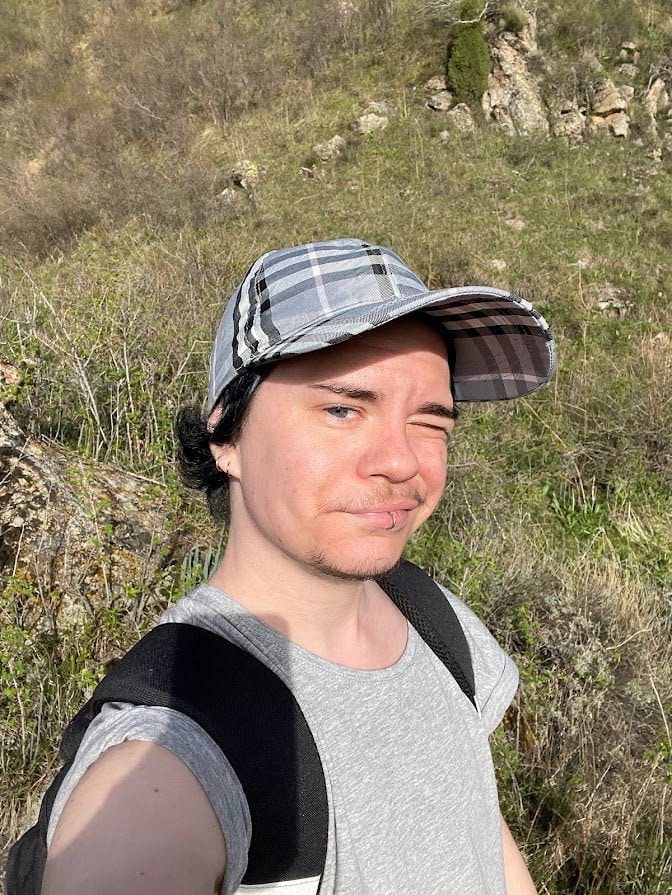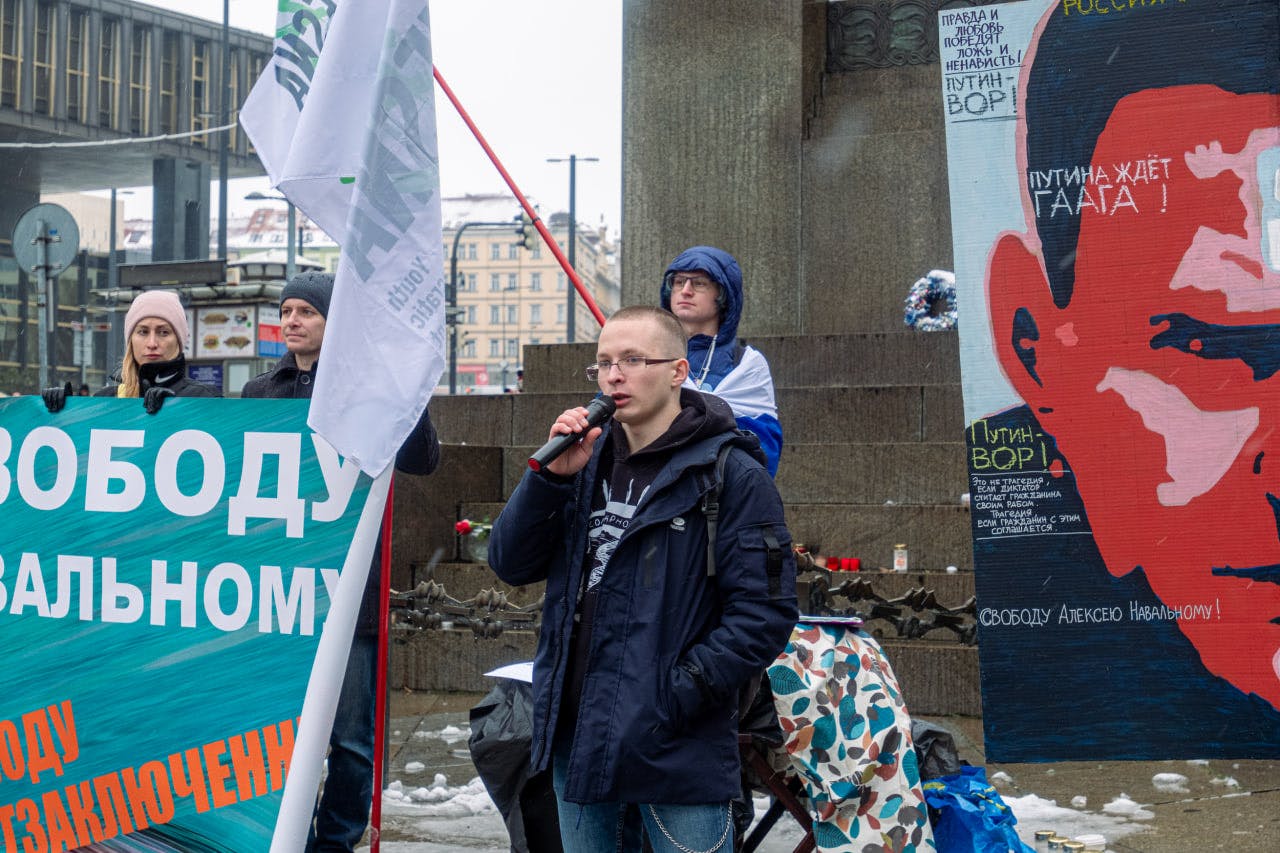Max Goldman
I still believe that someday the LGBT parades during Pride Month will be celebrated on the same level as Labour Day parades in May.


Elena Klimova, literary editor, journalist, and writer, is known as the creator of the highly acclaimed public Internet project supporting homosexual, bisexual, and transgender youngsters "Children-404".
How did it happen that you ended up as the movie's hero? Was there any fear of publicity?
The directors, Askold Kurov and Pavel Loparev, contacted me. They explained the idea of the movie. I agreed. There was no particular fear. First of all, I was quite fearless at the time, and I had not yet received hundreds of threatening messages, and secondly, I did not think that this movie could get millions of views and ruin my life.
How did you feel when the movie came out?
It's hard to say, it was a long time ago. I remember the first time I watched the movie and almost cried. The ending was very touching. With hope for the best.
Were there any consequences?
No. I've been recognized in the public before, but not because of the movie. My photos were in the media.
How has the group evolved since the movie came out?
Exactly the same as before. We ran a group on "VKontakte", we were periodically banned by some court decision, we were moving to a new group, it happened several times. During the time I was the heading the project, we published more than 10 thousand letters. Now the project has moved to Telegram.
Are there any stories that have touched you in a particular way?
I'm not a big fan of this question. Teenagers were and are writing stories, not to touch us and to be memorized by us. They ask for help and support. And all the stories are rather similar, all the problems are typical: misunderstanding of relatives and friends, unrequited love, thinking about the future.
Have you managed to establish long-term relationships with any of the band members?
I used to text with a few girls and boys for a few years, but the communication has slowly declined.
How have the stories, their tone and content changing over time?
They haven't changed. The problems remain the same. Under any laws, prohibitions and circumstances, teenagers are concerned about the same things: unrequited love, problems of identity, relationships with their families and the future.
You handed over administration to a group in 2020-21. What were the reasons?
There's a lot of reasons. I was bored with it. I was tired of waiting for the police to knock on my door ( they used to come often). I was tired of having to sue too. I wasted my time and nerves every time. My outlook on life and my interests have also changed. Now I run a telegram channel for radical feminists and write books for girls and women.
How was your life after that?
In general, everything has remained the same. I have not emigrated, I still live in Nizhny Tagil, I still have a spouse, a job, my favorite things to do.
What is your opinion on the current situation with the LGBT community and especially minors in Russia? And how do you think their future will be?
The situation is hard. Now it is much more difficult than it was when, according to the law on LGBT propaganda, firstly, it was punishable only among minors, and secondly, it was only an administrative punishment. There is a lot of censorship. But, thank God, no one has cut off the Internet yet. If you want to find information that you are not sick and you are normal, you can do it. You can also find people to socialize with. Yes, it's gotten a lot harder, on a self-perception level, but I don't share the " all is lost" views. We are here, we keep living, we are not disappearing under any laws.
According to gender psychologist Maria Sabunaeva, acceptance of LGBT in society goes through four stages: first they are ignored, then berated, then criticized, and then accepted. What stage do you think Russian society is at now?
I think that's a wrong and rather primitive way of thinking about things. "It's ignored/criticized/accepted" - who are we talking about? The "human mass?" It doesn't exist. About "society"? It doesn't exist either. There is no unified view of any phenomena, no unified attitude towards homosexual people. Neither 10 years ago nor now most people don't really care. That's not a bad thing either. It's not "sit back and keep your head down", it's "there are some of these people somewhere - well, fine". No one thinks about us - good or bad - until the propaganda starts poisoning our brains. Most share exactly such views. It's silly to think as if the abstract majority hates us. They don't.
Do you think leaving the country is the solution? What makes this option unaffordable for many people?
It depends on the individual. For some people it is a way out, for others it is not. Why is it unaffordable - first look at the median salary in the Russian Federation, then at the list of countries to which it is now almost impossible to get a visa, plus not everyone wants to leave, and that's normal. I also want to live a good life - but I want to live a good life where I am now.
Dieser Artikel wurde noch nicht ins Deutsche übersetzt. Wir suchen nach Freiwilligen, die uns dabei helfen können.
I still believe that someday the LGBT parades during Pride Month will be celebrated on the same level as Labour Day parades in May.

...Gebt nicht auf und verzweifelt nicht, tut, was ihr für richtig haltet. Russland wird auf jeden Fall frei sein.

Yes. There is very little hope, but that is the one thing that is hard to take away from us.

Unsere Medienplattform würde ohne unser internationales Freiwilligenteam nicht existieren. Möchten Sie eine_r davon werden? Hier ist die Liste der derzeit offenen Stellen:
Gibt es eine andere Art wie Sie uns unterstützen möchten? Lassen Sie es uns wissen:
Wir berichten über die aktuellen Probleme Russlands und seiner Menschen, die sich gegen den Krieg und für die Demokratie einsetzen. Wir bemühen uns, unsere Inhalte für das europäische Publikum so zugänglich wie möglich zu machen.
Möchten Sie an den Inhalten von Russen gegen den Krieg mitwirken?
Wir wollen die Menschen aus Russland, die für Frieden und Demokratie stehen, gehört werden lassen. Wir veröffentlichen ihre Geschichten und interviewen sie im Projekt Fragen Sie einen Russen.
Sind Sie eine Person aus Russland oder kennen Sie jemanden, der seine Geschichte erzählen möchte? Bitte kontaktieren Sie uns. Ihre Erfahrungen werden den Menschen helfen zu verstehen, wie Russland funktioniert.
Wir können Ihre Erfahrungen anonym veröffentlichen.
Unser Projekt wird von internationalen Freiwilligen betrieben - kein einziges Mitglied des Teams wird in jeglicher Weise bezahlt. Das Projekt hat jedoch laufende Kosten: Hosting, Domains, Abonnements für kostenpflichtige Online-Dienste (wie Midjourney oder Fillout.com) und Werbung.




Russland hat den Krieg gegen die Ukraine angefangen. Dieser Krieg dauert schon seit 2014 an. Er hat sich seit 24. Februar 2022 nur noch verschärft. Millionen von Ukrainern leiden. Die Schuldigen müssen für ihre Verbrechen zur Rechenschaft gezogen werden.
Das russische Regime versucht, die liberalen Stimmen zum Schweigen zu bringen. Es gibt russische Menschen, die gegen den Krieg sind - und das russische Regime versucht alles, um sie zum Schweigen zu bringen. Wir wollen das verhindern und ihren Stimmen Gehör verschaffen.
**Die russischen liberalen Initiativen sind für die europäische Öffentlichkeit bisweilen schwer zu verstehen. Der rechtliche, soziale und historische Kontext in Russland ist nicht immer klar. Wir wollen Informationen austauschen, Brücken bauen und das liberale Russland mit dem Westen verbinden.
Wir glauben an den Dialog, nicht an die Isolation. Die oppositionellen Kräfte in Russland werden ohne die Unterstützung der demokratischen Welt nichts verändern können. Wir glauben auch, dass der Dialog in beide Richtungen gehen sollte.
Die Wahl liegt bei Ihnen. Wir verstehen die Wut über die Verbrechen Russlands. Es liegt an Ihnen, ob Sie auf das russische Volk hören wollen, das sich dagegen wehrt.